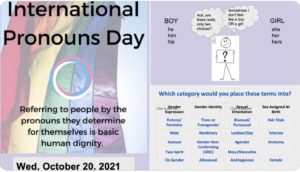Nationwide test scores show unprecedented decline in K-12 education due to pandemic policies that kept kids out of classrooms
Pandemic-era shutdowns and virtual learning caused a historic setback in K-12 education, according to new national data released on Monday.
The “Nation’s Report Card” released by the U.S….

Pandemic-era shutdowns and virtual learning caused a historic setback in K-12 education, according to new national data released on Monday.
The “Nation’s Report Card” released by the U.S. Department of Education’s National Center for Education Statistics (NCES) showed test results among 4-8th graders have declined at an unprecedented rate.
As the alarm bells go off, critics and proponents of the forced shutdowns disagree about whether the erasure of decades of progress could have been avoided.
Critics of the closures have stressed the fact that medical research showed early on that children were largely safe from the extremes of COVID-19, and that the learning loss would be catastrophic. That didn’t stop many teachers’ unions and state lawmakers from slow-rolling returns to in-person learning as long as possible.
Sherrilyn Ifill, senior fellow at the Ford Foundation and former president and director-counsel of the NAACP Legal Defense and Educational Fund, claimed the results were the “price” that had to be paid.
In reading, scores among 4th- and 8th-graders dropped, retreating back three decades to low marks in 1992. “Fourth-grade reading scores declined across all regions of the country and in 30 states/jurisdictions,” one headline on the report warns.
Mathematics results painted an even more alarming picture, with scores decreasing by the most significant margin ever. Scores dropped 5 points from 2019 among 4th graders and a staggering 8 points among 8th graders. The 8th-grade math scores demonstrate a dire emergency in that subject, with 38% of scores falling in the “below basic” category.
NCES Commissioner Peggy G. Carr lamented the “largest ever” decline in mathematics, pointing to results that “show the profound toll on student learning during the pandemic.”
“The results also underscore the importance of instruction and the role of schools in both students’ academic growth and their overall wellbeing,” Carr said, adding that “we do not have a moment to waste.”
Daniel J. McGrath, acting as NCES associate commissioner for the assessment, stressed how 8th grade is a “pivotal” moment for mathematics, as students “develop key mathematics skills for further learning and potential careers in mathematics and science.”
McGrath warned in the Report Card’s press release about the potential devastation this loss of learning could produce, saying, “If left unaddressed, this could alter the trajectories and life opportunities of a whole cohort of young people, potentially reducing their abilities to pursue rewarding and productive careers in mathematics, science, and technology.”
It will be 2024 before it is clear whether schools have returned to pre-pandemic levels. The NAEP test is given every two years between January and March, to students in every state and 26 of the largest school districts nationwide.



